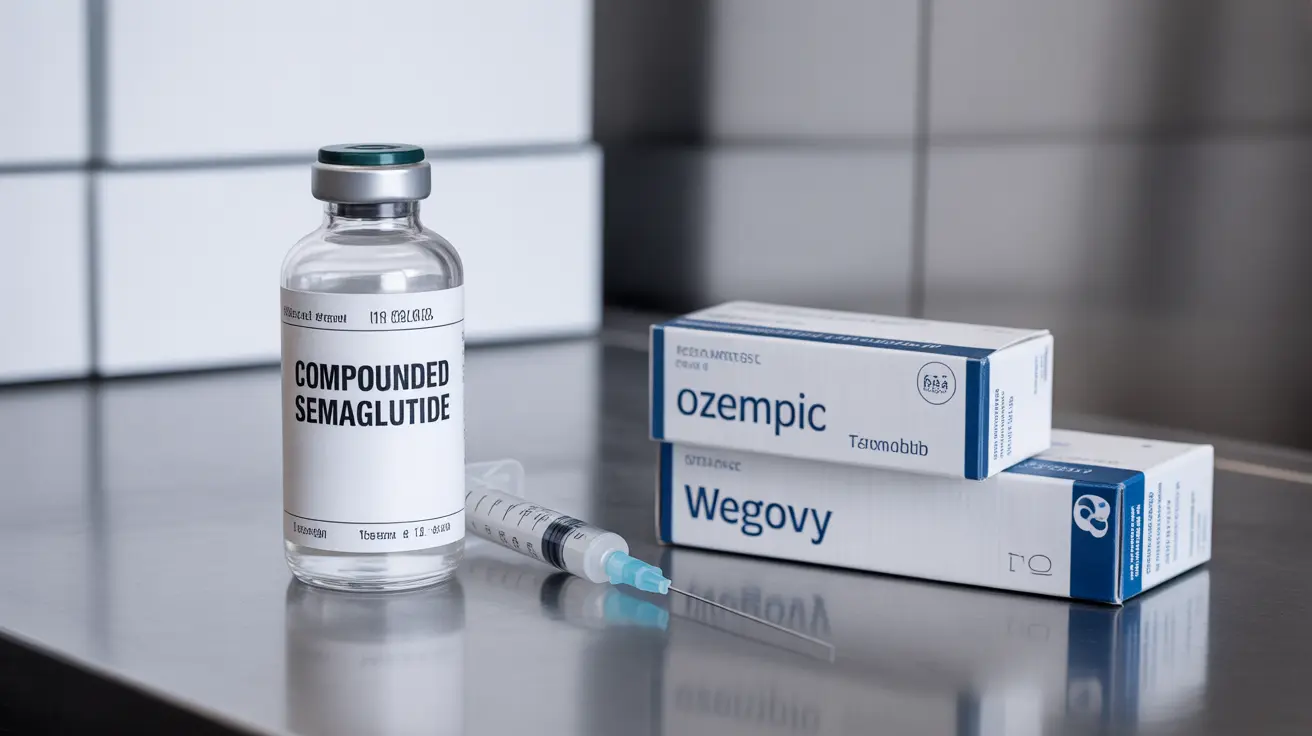As the demand for weight loss medications continues to rise, many people are turning to compounded semaglutide as an alternative to FDA-approved medications like Ozempic and Wegovy. This comprehensive guide explores the effectiveness, safety considerations, and important factors to consider when evaluating compounded semaglutide as a weight loss option.
Understanding Compounded Semaglutide
Compounded semaglutide is a specially prepared version of the active ingredient found in FDA-approved medications like Ozempic and Wegovy. Unlike these approved medications, compounded versions are created by specialized pharmacies to meet specific patient needs. However, these preparations lack FDA oversight and standardization, which raises important considerations about their use.
Effectiveness Compared to FDA-Approved Versions
While compounded semaglutide contains the same active ingredient as FDA-approved versions, several factors can affect its effectiveness:
- Quality and consistency of the active ingredient
- Precision of compounding processes
- Storage and handling conditions
- Accurate dosing mechanisms
Without FDA oversight, there's no guaranteed standardization across different compounding pharmacies, which can lead to variations in effectiveness and results.
Safety Considerations and Risks
Using compounded semaglutide comes with several important safety considerations:
Quality Control Concerns
Compounding pharmacies operate under different regulatory standards than pharmaceutical manufacturers, which can affect:
- Product purity and potency
- Sterility measures
- Quality control processes
- Consistency between batches
Potential Side Effects
Common side effects may include:
- Nausea and vomiting
- Gastrointestinal disturbances
- Headaches
- Fatigue
- Blood sugar fluctuations
Guidelines for Safe Use
If considering compounded semaglutide, follow these essential safety practices:
Working with Healthcare Providers
Always ensure:
- Regular medical supervision
- Proper dosing protocols
- Ongoing monitoring of side effects
- Clear communication about any concerns
Choosing a Reputable Pharmacy
Select compounding pharmacies that:
- Hold appropriate certifications
- Follow strict quality control measures
- Have experience with semaglutide preparation
- Maintain transparent practices
Frequently Asked Questions
Does compounded semaglutide work as effectively for weight loss as FDA-approved Ozempic or Wegovy? While compounded semaglutide contains the same active ingredient, its effectiveness can vary due to differences in preparation, quality control, and standardization compared to FDA-approved versions.
What are the safety risks and side effects associated with using compounded semaglutide? Safety risks include potential quality control issues, inconsistent potency, and standard semaglutide side effects like nausea, vomiting, and gastrointestinal issues. The lack of FDA oversight adds additional uncertainty about product safety.
Why is compounded semaglutide not approved by the FDA, and what does that mean for its use? Compounded semaglutide isn't FDA-approved because it's custom-made in pharmacies rather than manufactured under standardized conditions. This means there's less oversight and quality control compared to approved medications.
When is it appropriate to use compounded semaglutide instead of FDA-approved semaglutide medications? Compounded semaglutide might be considered when FDA-approved versions are unavailable, when patients have specific allergies to inactive ingredients, or when custom dosing is required. However, it should only be used under careful medical supervision.
How can patients reduce the risk of dosing errors and complications when using compounded semaglutide? Patients should work closely with healthcare providers, use reputable compounding pharmacies, follow dosing instructions carefully, monitor for side effects, and maintain regular medical check-ups to ensure safe use.




